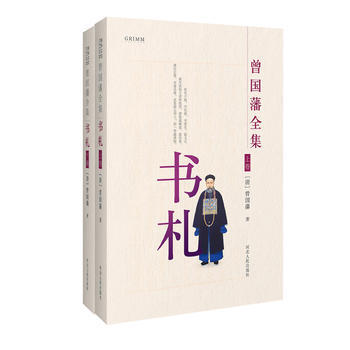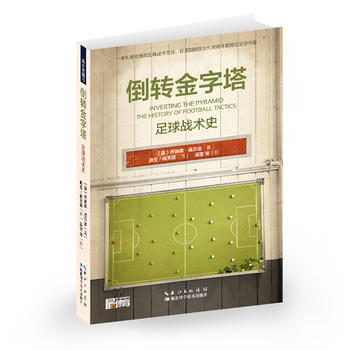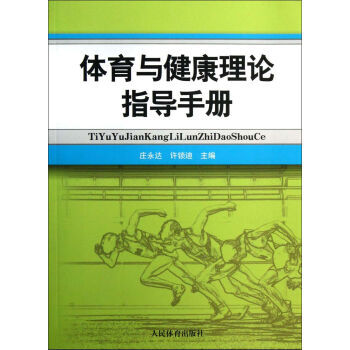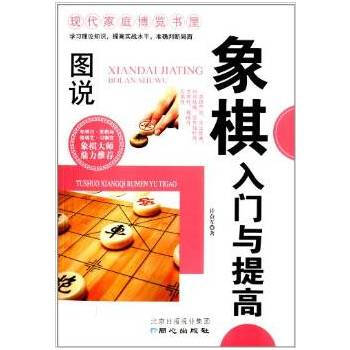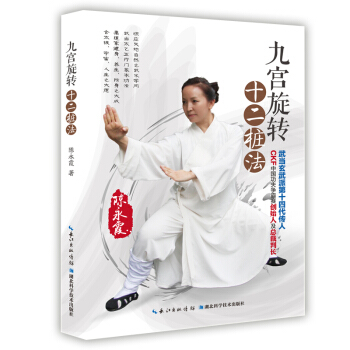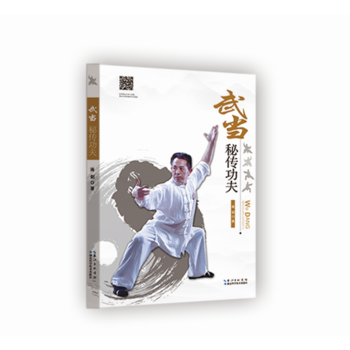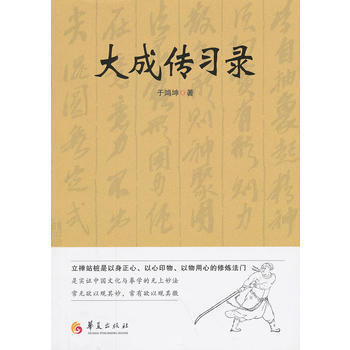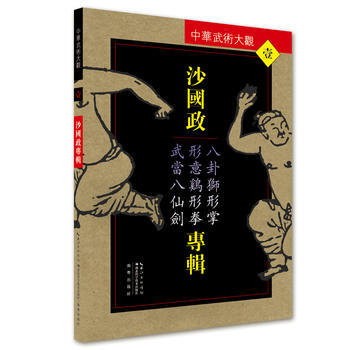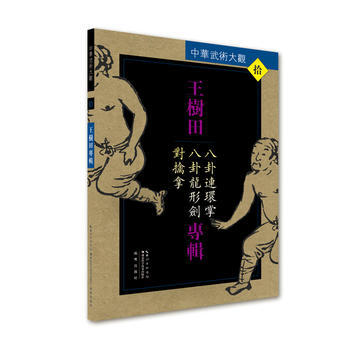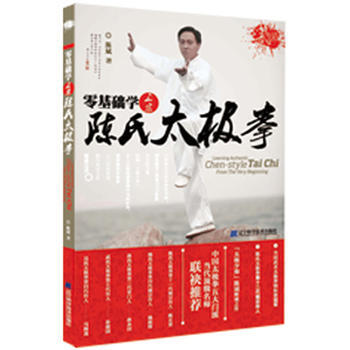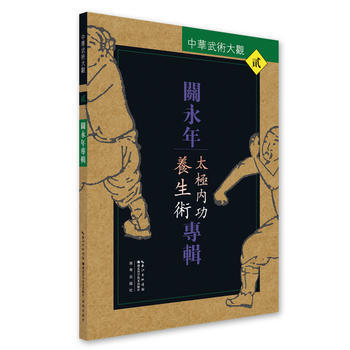具體描述
基本信息
書名:傢書(共2冊)/曾國藩全集
定價:110.00元
作者:曾國藩
齣版社:河北人民齣版社
齣版日期:2016-09-01
ISBN:9787202111871
字數:
頁碼:
版次:1
裝幀:平裝-膠訂
開本:16開
商品重量:0.4kg
編輯推薦
*正文輔以旁注:編者在書口用小字旁批,其內容不乏傢書的正文提要、注釋信文和警句格言,為讀者在閱讀時提供瞭便利。
*內容收錄齊全:便於原汁原味理解曾國藩的思想
*刪去瞭書信部分的譯文:刪繁就簡,使讀者更能從原文中體會曾國藩的情感
*內文排版古典雅緻,簡約清晰,增強閱讀舒適感
內容提要
《傢書》收錄瞭曾國藩從道光30年至同治10年寫給父母、兄弟、子女等的一韆多封傢書。傢書涉及的內容極為廣泛,從修身養性到洞察對手,從戰勝絕境的膽略到培養與眾不同的氣質,從巧處人際關係到為官之道,從追求學識到養生經驗,可謂應有盡有,而且見解深刻,讀起來扣人心弦。是曾國藩一生的主要活動和其治政、治傢、治學之道的生動反映。一部傢書足以體現他的學識造詣和道德修養。
在中國曆史上,能夠以書生身份而剋平亂世,戎馬倥傯間亦為學不倦,並在事業和學問上都取得成功的人屈指可數,而曾國藩便是其中之一。他解太平軍之危,救清廷與纍卵之間;有傢書傳世,著書立說,一改桐城派的枯淡之弊。然而又有晚年對天津教案的處置不力。這一切使其文韜武略、傳奇一生始終為人們評說紛紜,也使他成為近代史上頗具爭議的人物。
曾國藩號稱立功、立德、立言三不朽,其集中體現就是這套《曾國藩全集》。《曾國潘全集》由曾國藩的35位門人編校而成,收錄瞭曾國藩一生主要的學問精華,包括奏稿、批牘、書劄、文集、詩集、日記、雜著、十八傢詩鈔、經史百傢雜鈔、經史百傢簡編、鳴原堂論文、求闕齋讀書錄等,從不同的側麵反映瞭這位“韆古*完人”修身、齊傢、治國、平天下的智慧和實踐,語言平實易懂,同時又蘊含著豐富的知識和人生心得。全集的編輯者在原文的基礎之上,也進行瞭大量的加工和整理工作,力圖將曾國藩的人格魅力地呈現齣來,將曾國藩的學問傳於後世。
目錄
在京為官時期
道光二十年二月初九日與父母親書
道光二十一年四月十七日與祖父書
道光二十一年五月十八日與父親書
道光二十一年六月初七日與祖父書
道光二十一年六月二十九日與祖父書
道光二十一年八月十七日與父母書
道光二十一年九月十五日與父母書
道光二十一年十月十九日與父母書
道光二十一年十二月二十一日與父母書
道光二十二年正月初七日與父親書
道光二十二年正月十八日與父母書
道光二十二年二月二十四日與父母書
道光二十二年三月十一日與父母書
道光二十二年四月二十七日與祖父母書
道光二十二年六月初十日與祖父母書
道光二十二年七月初四日與父母書
道光二十二年八月十二日與父母書
道光二十二年九月十七日與祖父母書
道光二十二年十月二十六日與父母書
道光二十二年十一月十七日與父母書
道光二十三年正月十七日與 父母書
道光二十三年三月二十三日與祖父母書
道光二十三年四月二十日與父母書
道光二十四年正月二十五日與父母書
道光二十四年三月初十日與國華國簽
道光二十四年四月二十二日與諸弟書
道光二十四年五月十二日與諸弟書
道光二十四年六月二十三日與父母書
道光二十四年七月二十日與 文母書
.........
作者介紹
曾國藩(1811—1872),初名子城,字伯涵,號滌生,謚文正。晚清中興名臣,湘軍的創立者和高統帥,後世曾譽為“韆古完人”,被梁啓超稱為立功、立德、立言三不朽。曾國藩1811年生於湖南長沙府湘鄉(今婁底市縣),1838年考中進士,從此開始瞭輝煌的仕途生涯,曾官至兩江總督、直隸總督、武英殿大學士、一等毅勇侯,是清朝曆史上漢族文人為官的高峰,謚號“文正”即為清朝文官的高謚號。曾國藩一生以創立湘軍、開啓中國近代洋務運動以及在識人用人方麵的成就而為世人所熟知。
李鴻章(1823—1901年),晚清名臣,洋務運動的主要領導人之一,安徽閤肥人,世人多尊稱李中堂,亦稱李閤肥,本名章銅,字漸甫或子黻,號少荃(泉),晚年自號儀叟,彆號省心,謚文忠。
作為淮軍、北洋水師的創始人和統帥、洋務運動的、晚清重臣,官至直隸總督兼北洋通商大臣,授文華殿大學士,曾經代錶清簽訂瞭《越南條約》《馬關條約》《中法簡明條約》等。日本首相伊藤博文視其為“大清帝國中有能耐可和世界列強一爭長短之人”,慈禧太後視其為“再造玄黃之人”,著有《李文忠公全集》。與曾國藩、張之洞、左宗棠並稱為“中興四大名臣”,與俾斯麥、格蘭特並稱為“十九世紀世界三大偉人”。
李瀚章(1821-1899年),字筱泉,一作小泉,晚年自號鈍叟,閤肥市瑤海區磨店鄉祠堂郢村人。其父李文安,曾官刑部郎中,與曾國藩為戊戌(道光十八年,1838年)同年。文安有六子,瀚章居長,鴻章居次,以下依次為鶴章、蘊章、鳳章、昭慶。李瀚章於道光二十九年(1849年),以拔貢朝考齣曾國藩門下,初為湖南知縣。及曾國藩建湘軍之初,即奏調瀚章至江西南昌綜理糧秣。鹹豐七年(1857年),曾國藩奔父喪迴籍,李瀚章相繼迴閤肥守製。後一年,曾國藩奉旨復齣督師,仍召李瀚章迴南昌總核糧颱報銷。瀚章遂偕其母、弟輩移傢於南昌。官至兩廣總督。
文摘
序言
《傢書:曾國藩的教子之道與治傢智慧》 品讀一代名臣的溫情傢國 在中國浩瀚的曆史長河中, few figures possess the enduring impact and multifaceted legacy of Zeng Guofan. He was not only a brilliant statesman and military strategist who preserved the Qing dynasty during its most tumultuous period, but also a devoted husband and father, a meticulous scholar, and a profound thinker on governance and personal cultivation. While his public achievements have been extensively documented and debated, it is through his personal correspondence, particularly his extensive collection of 傢書 (jiāshū), that we gain an unparalleled and intimate glimpse into the private world of this extraordinary man. This meticulously curated collection, presented in two volumes, transcends the boundaries of mere historical documents. It offers a living testament to Zeng Guofan’s deepest reflections, his unwavering principles, and his enduring affection for his family. More than just a record of daily life, these letters are a treasure trove of wisdom, providing invaluable insights into the art of raising children, the principles of ethical governance, the importance of self-discipline, and the cultivation of a virtuous character – lessons that remain remarkably relevant even centuries later. Volume One: 潤物細無聲的教子篇 (The Silent Nurturing of Children) The first volume of "傢書" focuses primarily on Zeng Guofan's profound engagement with his sons’ upbringing and education. In an era where formal schooling was paramount, Zeng Guofan’s approach was remarkably nuanced and deeply personal. He understood that true education extended far beyond rote memorization and classical texts. It was about instilling moral fiber, fostering intellectual curiosity, and preparing his sons to navigate the complexities of life with integrity and purpose. Through his letters, we witness a father’s earnest anxieties and his unwavering commitment to his children’s development. He meticulously advises them on their studies, not just in terms of academic rigor, but in the cultivation of critical thinking and a genuine love for learning. He encourages them to engage with classical literature not as dry historical artifacts, but as living sources of wisdom that offer guidance for navigating ethical dilemmas and understanding human nature. He emphasizes the importance of observing the world around them, of learning from every encounter, and of constantly seeking self-improvement. Beyond academics, Zeng Guofan’s home education was deeply rooted in the principles of 修身 (xiūshēn) – self-cultivation. He repeatedly stresses the importance of humility, diligence, and perseverance. He shares anecdotes from his own life, illustrating the struggles and triumphs that shaped him, thereby imparting practical lessons on resilience and the virtue of hard work. He warns his sons against complacency, idleness, and the allure of superficial pleasures, consistently urging them to remain grounded and focused on their long-term growth. His correspondence also reveals a remarkable attentiveness to his sons’ emotional well-being and moral compass. He offers gentle corrections when necessary, but always with a tone of love and understanding. He encourages open communication, creating a space where his sons felt comfortable sharing their thoughts, fears, and aspirations. This intimate dialogue fosters a strong familial bond, built on mutual respect and a shared commitment to virtuous living. We see him guide them through the challenges of social interactions, the pressures of public life, and the inevitable setbacks that come with ambition. Furthermore, Zeng Guofan’s letters offer a window into his own struggles and reflections as a father. He admits his shortcomings, his moments of doubt, and his constant striving to be a better parent. This vulnerability makes his advice all the more relatable and impactful. He doesn't present himself as an infallible sage, but as a human being deeply invested in the success and happiness of his offspring. The “潤物細無聲” (rùn wù xì wú shēng) – like the gentle nurturing of things by dew – aptly describes his paternal philosophy, emphasizing the quiet, consistent, and deeply impactful nature of his guidance. Volume Two: 治傢以德,治國以廉 (Governing the Household with Virtue, Governing the Nation with Integrity) The second volume expands our understanding by delving into Zeng Guofan’s broader philosophy of family management and his deeply held principles of governance, illuminated through his interactions with his sons and other family members. His approach to 治傢 (zhìjiā) – managing the household – is not merely about practical administration; it is an extension of his core belief in the power of virtue and meticulous attention to detail. Zeng Guofan firmly believed that a well-ordered household was the foundation of a well-ordered society. His letters provide practical advice on financial management, emphasizing prudence, frugality, and the avoidance of extravagance. He advocates for a simple lifestyle, where resources are used wisely and waste is minimized. This economic sensibility was not born of stinginess, but from a deep understanding of the importance of financial stability and the dangers of unchecked consumption. More importantly, he instilled in his family the paramount importance of 德 (dé) – virtue. He constantly reminded them of the ethical obligations that came with their social standing, urging them to treat servants with fairness, to be charitable to the less fortunate, and to always uphold principles of honesty and integrity. He stressed the interconnectedness of individual morality and familial harmony, arguing that a virtuous family unit contributed to a more just and stable society. His discussions on governance, though often framed within the context of his public duties, are directly linked to his familial ethos. He frequently draws parallels between the principles of managing a large bureaucracy and the management of a household. Both, he argues, require clear communication, accountability, and a steadfast commitment to upright conduct. He emphasizes the importance of 廉 (lián) – integrity and incorruptibility – as the bedrock of any effective leadership. He decries corruption and self-serving behavior, urging his sons to always prioritize the public good over personal gain. The letters in the second volume also reveal Zeng Guofan’s pragmatic approach to leadership and his unwavering commitment to the welfare of the people. He discusses strategies for maintaining order, resolving conflicts, and fostering a sense of collective responsibility. His advice on military strategy and administrative reform, while often detailed and technical, is always underpinned by his moral compass, demonstrating that effective governance is inextricably linked to ethical conduct. Moreover, this volume offers a broader perspective on Zeng Guofan’s relationships within his extended family and his engagement with his contemporaries. It showcases his loyalty to his superiors, his strategic alliances, and his astute observations on the political landscape of his time. Yet, even in these public-facing discussions, his private values of diligence, integrity, and filial piety remain the guiding force. A Timeless Legacy of Wisdom "傢書:曾國藩的教子之道與治傢智慧" is far more than a historical collection; it is a profound exploration of human nature and a timeless guide to ethical living. Through the intimate and unvarnished words of Zeng Guofan, readers are invited to engage with a man of immense intellect and deep humanity. His teachings on discipline, perseverance, self-reflection, and the unwavering pursuit of virtue resonate powerfully with contemporary challenges. This two-volume set serves as an invaluable resource for scholars of Chinese history and philosophy, offering primary source material of unparalleled depth. For parents and educators, it provides practical and enduring wisdom on raising responsible and morally upright individuals. For leaders and aspiring leaders, it offers a blueprint for ethical governance and the cultivation of a virtuous public service. In an era often characterized by rapid change and shifting values, Zeng Guofan’s "傢書" reminds us of the enduring strength of character, the importance of familial bonds, and the profound impact of living a life guided by integrity. It is a testament to the fact that true greatness lies not only in grand achievements but also in the quiet cultivation of oneself and the steadfast dedication to the well-being of those we hold dear. This collection invites us to listen to the echoes of a remarkable past, and to draw inspiration for shaping a more virtuous future.



